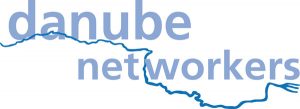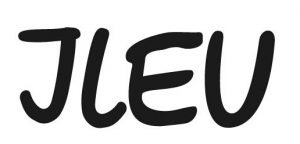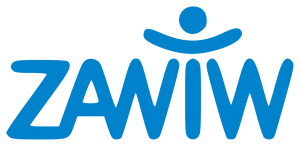In Germany there are various fields of adult education. A distinction is made between
- continuing vocational education and training
- general continuing education
- political continuing education
ILEU
Pixabay
Vida Vilhar Pobegajlo
In the glossary, you will find short descriptions of our understanding of certain terms that are related to our work. We are well aware that these descriptions are rather short, in many cases too short to cover the philosophical dimension behind the term. However, the short descriptions are sufficient for our project.
In Germany there are various fields of adult education. A distinction is made between
The way of life preserving and developing ones abilities to ensuring their active involvement in social and economic development.
All activities aimed at deepening, extending or updating the knowledge, skills and abilities (so-called competences) of people who have completed an initial phase of education.
Adult education in Italy, in accordance with the indications of the Council of Europe and within the Strategic Education and Training 2020 framework, is essential to overcome the current crisis and promote equity, social cohesion and active citizenship. It is realized: in a formal way at the offices of the teaching unit of the CPIA (Provincial Centers for Adult Education), that is to say at the second-level educational institutions that provide the courses, of literacy and learning of the Italian language in addition to paths to obtain diplomas first and second level for Italian adults, foreigners, migrants, disabled and older students, for free only. in an informal way through the universities of the third age and other similar educational agencies. In our universities courses in Italian language, language, (English, French, Spanish, German) are carried out for the purpose of integration and cohesion, upon request mini-courses (of Georgian, Albanian language ...). Of Italian history and of our countries foreign students), of computers.
The Chitalishte is unique, traditional, community based organization with cultural, educational, informational, social and civic functions open for people of all ages. The Chitalishta of the 19th and early 20th century had a crucial role in preserving and developing Bulgarian culture and identity thus played an important role during the Bulgarian National Revival. The term “Chitalishte” is a compound noun, originating from the Bulgarian Slavic root, chital- (reading) and the suffix -ishte (place where preceding verb happens). The word Chitalishte in translation means "reading room", a place where books are kept for public use. The first organizations of this kind emerged towards the end of the Ottoman era, in 1856. Later, the chitalishte became an important multi-purpose institution in villages and smaller towns.
Overall Croatian context is characterised by broad reform process in elementary and secondary education. Most of Ministry of Education efforts are focused just on school reform, which includes new curricula and the process of radical digitalisation of elementary school education. Adult education is a neglected part of education system and is left behind in recent policy process.
Under which conditions is further education for our target groups offered in Slovenia? What are the educational opportunities in your country for your target groups?
In some aspects Slovenian Third Age University considerably differs from what can be found in other European countries, the opinion of EUROSTAT researchers being “In this field the North of Europe has a lot to learn from the South of Europe”.
There are a lot of NGOs in Romania, involved in the adult education, as it can be seen on the list of Erasmus+ Romanian National Agency. Very important is the dissemination of the results of their work. In the field of adult education, the NGOs are financed usually by European and international projects.
Bulgaria developed and adopted its National Strategy for Active Aging covering the 2012-2030 period, which includes a complex cross-sector approach to active and productive adult living in good health. It encompasses the adaptation of social systems to demographic change and the aging of the population, the labor market, pension system, social assistance and care, healthcare, education, culture and others.
A process defining the way in which people belong to Eurepean community. It contains personal and collective European identity.
What is critical thinking? How can it improved? Critical thinking is a important key competence to understand the world and to scrutinise all the simple and populism answers. It is the key competence to analysis facts to form a judgment. Here we can not discuss all existing different definitions, but in generally it will ...
Set of structured activities with defined goals and actors leading to results which are beneficial for European community.
A space accessible to all characterized by interconnectivity, diversity and plurality.
Primitive thinking scheeme conditioned by what our socil group thinks.
A highly emotional negative opinion/attitude denigrating sobebody or something.
A process and a state of being included and accepted.
A state of being excluded and not belonging. Opposite of included.
Process of getting aware of society and its isshues. An ability to deal with sociaty.
Having more or less access to social resources.
Individuals, institutions, organisatons interconnected sharing values, pursuing the same goals.
The process of defining what is valuable to a community.
The power or right to act, speak, or think as one wants without depriving the others of their rights.
The process and the state of those who are actively involved in joined managing and developing communities.
Process and state of society including the main stream group and groups at the edge of society.
Is an embodiment of both disciplinary and experiential knowledge and skills unted to perform tasks.
It is a combination of disciplinary and experiencial knowledge and validated in real life situations.
Person engaged in the process of learning. Learning is a change of behavior and attitude.
Groups of people pushed by the main stream group to the edge of society.
Education of those who quit formal education, gain real life experience and re-enter formal or nonformal education. The continuation or resumption of organised learning after the completion of a first phase of education.
Process of learning going on from cradle to grave.
Problems and challenges related to sustainability of social, natural and built environment
A set of procedures for achieving preset goals.
Process of bringing digital technology into life.
People from different cultural backgrounds coming together.
Way of life preserving and developing ones abilities to ensuring their active involvement in social and economic development.
European strategy related to economic, political, technological and social development of the Danube region.
Structured learning taking into account the needs, wishes and hopes of potencial participants.
Structured procedures with pre-set curriculum imposed by authorities with attainments publicly recognised.
Accidential learning in everyday acitivites.
Procedure that includes participants from different generations actively involved in persuing commonly agreed goals.
Ability to change one˝s social status or geografical location.
Procedure offering opportunity to be engaged in education and cultural events while aquiring competences linked to the needs within the project.
Community of people connected by common interests and collective activity.
Formal and nonformal education following after retirement of professional work to meet coping, expressing and influential needs.
Moodle is an acronym for "Modular Object-Oriented Dynamic Learning Environment." It is an online educational platform that provides custom learning environments for students. Educators can use Moodle to create lessons, manage courses, and interact with teachers and students. Moodle is an open source learning environment.




Design and Development by arivum.